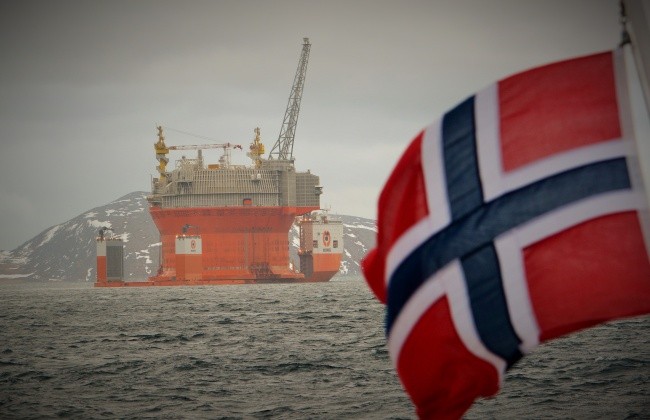European Parliament calls for ban on oil drilling in icy waters

The European Parliament on Thursday voted in favor of a suggestion to put a ban on oil drilling in icy waters of the European Union and the European Economic Area.
Icy waters, however, are further north in the Barents Sea than any on-going petroleum projects planned by Norway.
A proposal to put a ban on all drilling for oil in the Arctic was rejected by the majority of the members of the European Parliament, reports EUobserver. Most of the Norwegian Sea and the Norwegian sector of the Barents Sea are ice free year-around due to the warm currents of the Gulf Stream.
The Norwegian Government on Monday announced a proposal to add 93 Barents Sea blocks into the forthcoming 24th License Round for offshore drilling. The northernmost of the blocks are at 73 and 74 degrees North, in the area just southeast of Bjørnøya in the Barents Sea. This area is without ice and will not be affected by the resolution by the European Parliament.
The only operational oil field in icy waters today is Russia’s Prirlazlomnoye platform in the eastern Barents Sea south of Novaya Zemlya.

Where is the ice edge?
With a resolution calling for a ban on drilling in icy waters, the parliament opens for a debate about where is the ice edge in the Barents Sea. A similar debate has been going on in Norway for years.
With warmer waters in the Arctic Oceans, the ice edge moves further and further north.
MEP Heidi Hautala (Green, Finland) told the Barents Observer that she is extremely disappointed by Norway’s decision to go all in for new oil blocks in the northern Barents Sea.
“If one puts this into perspective of the absolute urgency of combating climate change, it is really very important for the EU to stop the subsidies to fossil fuels,” Hautala said.
Satisfied with voting
After the voting on Thursday, Hautala says she is satisfied with the result. “Now it is for the EU Commission to see how best take into account the Parliament’s concerns.”
The paragraph in the report calling for a “ban on oil drilling in the icy waters of the EU and EEA” was adopted with 304 votes to 289.
Norway’s Minister of EEA and EU Affairs, Frank Bakke-Jensen, expresses satisfaction with the resolution.
“Strikes good balance between sustainable use and protection of natural resources,” he tweets.
EU heads towards green economy
The European Parliament’s position is non-binding, but mirrors a vision within the EU to move away from a carbon economy towards more renewable energy in the longer run.
A parliament press release says the call for a ban on “oil drilling in the icy Arctic waters of the EU and the EEA” is important as the use of fossil fuels will further accelerate climate change. The MEPs also reiterate their 2014 call to halt the use of heavy fuel oil in maritime transport on the Arctic sea. Should this not prove feasible at international level, the European Commission should come up with rules to prohibit the use and carriage of HFO for vessels calling at EU ports, they add.
“The Arctic region is very sensitive and vulnerable. If we destroy this area by using the resources there unsustainably, we shall not only be destroying a unique region, but also accelerating climate change and polluting a source of clean water. The effects on global fish stocks would also be catastrophic“, said co-rapporteur Sirpa Pietikainen (EPP, Finland).
The resolution was passed by 483 votes to 100, with 37 abstentions.